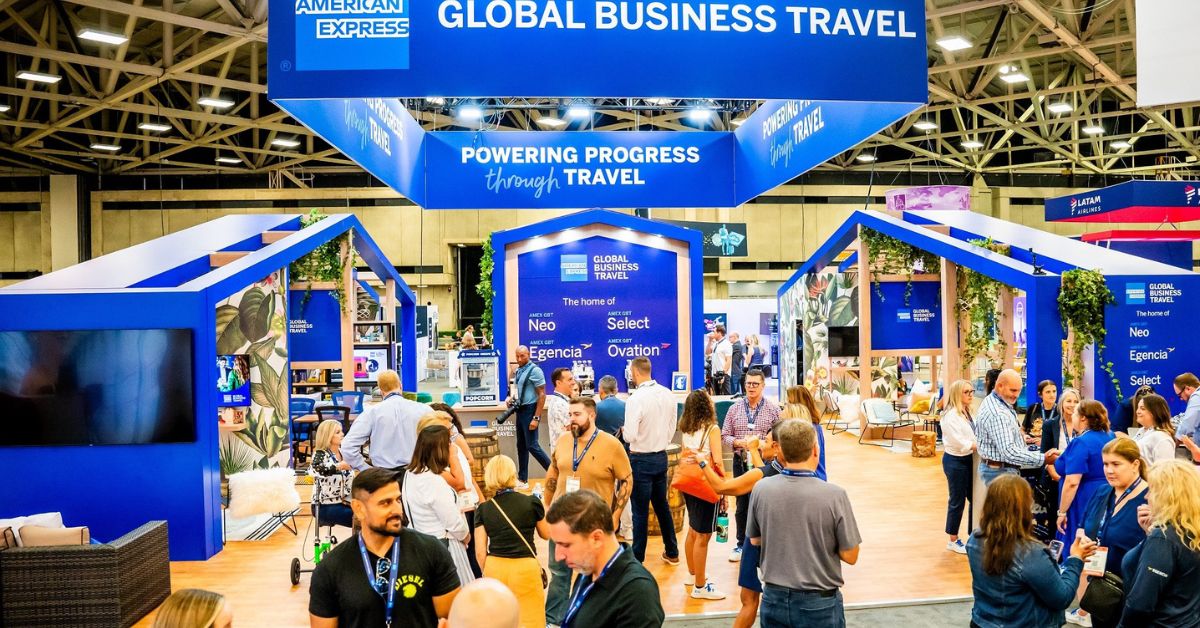DUBAI — The COVID-19 pandemic has made many businesses hesitant to send employees on unnecessary travel. Video conferencing has made it possible for many meetings to be held virtually, which can save companies money on travel expenses. The rising cost of travel, due to factors such as fuel prices and inflation, has made it more difficult for businesses to justify sending employees on long-distance trips.
However, according to the recent Business Travel Index Outlook from the Global Business Travel Association (GBTA), business travel spending in the Middle East and Africa (MEA) region is bouncing back and will return to pre-pandemic levels by 2024. This is due to more employees intending to take work-related trips amid easing travel restrictions and increased economic activity.
Business travel spending is a key source of revenue in the air transport and hospitality industry in the region, particularly in Dubai and Abu Dhabi. Prior to the COVID-19 pandemic in 2019, more than 2.3 million people took business trips to Dubai, an increase of 2 percent from 2018 and representing 10.7 percent of the total visitors to the UAE in 2019, according to data published on the Ministry of Economy website.
It is not clear yet how many business travelers have returned to Dubai or the region since the pandemic, but as of 2022, business travel spending in MEA reached $23 billion, representing around 2.5 percent of the overall spending within the sector, according to GBTA. Overall corporate travel spending in the region has already achieved nearly 90 percent of pre-pandemic levels.

“Nothing could have been worse for the travel industry than COVID,” says Ali Haider, the Regional Director of Nomadic, a Fragomen owned company and a corporate traveler solution platform. “Everything came to a halt. However, in January of this year, we conducted a survey, and 82 of the 167 countries confirmed that all COVID-related restrictions and vaccines had been lifted, indicating that things are returning to normal,” he said.
“I believe there were several reports, but one major one, I believe from the Wall Street Journal, confirmed that by the end of last year, total business traveler volumes around the world had returned to about 70 percent of pre-pandemic levels, which is a healthy return to form,” Haider added. “According to Dubai government statistics, by the end of last year we were looking at about 70 percent of business traveler volumes with the general trend appears to be a return to normalcy.”
Haider explained that today’s business trips are longer than in the past, despite the fact that they are fewer. “We analyzed approximately 350,000 different trips and discovered that business trips have historically been very short compared to other types of purposes, with most people traveling for business going for a week or less. However, during and following COVID, we have seen a structural change to business trips, at least based on the usage of our tool. It appears that though people are traveling less for business, the trips themselves are getting longer, and countries like the UAE are enabling this trend to continue through exceptional digital nomad programs or freelancer permits, and other available types of visa categories,” he said.
Business gets serious * By the end of last year, total business traveler volumes around the world had returned to about 70% of pre-pandemic levels, according to reports. * Business trips are getting longer post-pandemic, with most people traveling for business going for a week or less, according to an analysis of approximately 350,000 different trips. * The UAE is enabling the trend of longer business trips through exceptional digital nomad programs, freelancer permits, and other available types of visa categories. * The decline in summer business travel could negatively impact the economy and the jobs of those who work in the travel industry, which employs millions of people and generates billions of dollars annually. * Businesses should broaden the types of services they offer and their view of source markets to support business travel. * The UAE is at the forefront of technological advancement and development, with electronic E-channels and visa platforms at airports streamlining the process and improving the experience for travelers. * The evolution of the legal framework in the UAE, such as introducing new visa categories, is designed to make it more appealing and open to visitors.
The decline in summer business travel is a cause for concern for the travel industry. The travel industry employs millions of people and generates billions of dollars annually. A decline in business travel could negatively impact the economy and the jobs of those who work in the travel industry.
There are potential solutions that should be implemented to support business travel, according to Haider. For example, businesses should broaden the types of services they offer to capture various ends. It shouldn’t just be tickets and helping with hotel reservations and so on. Creative thinking is essential to support them.

“Companies should also broaden their view of source markets. Historically, the main source markets for business travel were the United States and Europe… However, I believe many countries from the East, Asia, Asia Pacific, and other parts of the world are flocking to the UAE, particularly because it has been dynamic, open, and flexible in its visa-on-arrival policies. To gain a competitive advantage, it would be in their best interests to focus their efforts on these new untapped source markets as well,” he added.
Haider believes that business travel in the UAE has a bright future because the UAE is at the forefront of technological advancement and development. For example, we’ve seen it at airports with electronic E-channels and visa platforms; it streamlines the entire process and improves the experience, which plays a massive role in deciding where travelers want to go.
According to him, the other component is the evolution of the legal framework, such as introducing new visa categories. “In my experience, over the last ten years, I’ve seen the UAE develop a lot very quickly, with new laws, new changes, and new policies on the horizon, all of which are designed to make it more appealing and open to visitors.”








